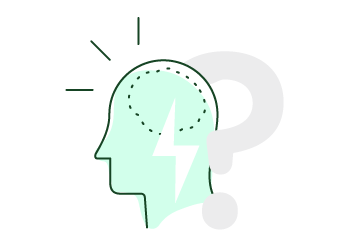Personal Productivity
The Path to Self Improvement
AUTHOR: Francisco Sáez“Once we accept our limits, we go beyond them.” ~ Albert Einstein

No matter how much you develop the necessary skills to improve any given aspect of your life, you can always get better. There is no book, no method, no person, nor tool that can bring you to perfection in any area of your life. Getting better, improving yourself, is a never-ending process.
Leading a healthy lifestyle, keeping fit, being productive, etc., are things that most people want to do in order to feel better, to lead a happier and more meaningful life. But being physically fit today does not mean that you will be fit six months from now. Having a well-organized and tidy life today does not mean that things will remain like that after a while.
If you can never achieve perfection in any of the areas you care about, then what can you do? It’s very simple, use all your available resources in order to create and consolidate good habits, learn a little here and a little there, and enjoy the ride without worrying too much about the destination.
Take an interest in psychology.
I’ve always found the process of understanding how people operate, why we do what we do, fascinating—not to mention very useful. I like to know and think about what lurks behind the apparently illogical and stupid decisions I take every once in a while.
Psychology helps us analyze our thoughts and actions, and helps us understand our own motivations. If you want to improve, you must first be capable of looking at yourself from an objective point of view, from outside yourself.
Read about psychology. Many books on personal development are based on psychological studies, and there’s a good reason for that. And it’s precisely because of this that many of the articles in this blog have a strong psychological element: Why we do what we do, Self-Determination Theory, Intrinsic motivation, The Science behind GTD, etc.
Create good habits
Our ability to improve is largely determined by our habits. Our habits influence the way we respond to any given situation, and ultimately they define how efficient we can become.
You have plenty of room for improvement here. There’s no doubt that some of your habits are not entirely healthy, productive or simply commendable. Work on your habits and on your willpower, constantly.
Find out if your current habits are convenient, create new habits that can help you improve and change those that are not so good.
Use formal methods
Using formal methods can help you make significant progress in certain areas, for the reasons mentioned above. Formal methods work because they are based on psychological structures that make lots of sense. Furthermore, formal methods can help you create key habits.
You can go to the gym and work out the way you want to, but you will achieve greater progress if you follow a formal training programme which has been specifically designed for your current fitness. The same can be said about diets, health or productivity. If you have a structured system to face your daily activities, you will have greater control, tranquility and ability to improve.
There are, in the personal productivity realm, several methods and techniques that can help you. It is not necessary—or efficient—to wage all those battles on your own.
Add some technology
Nowadays we cannot afford to ignore technology as a tool that can virtually help you with almost everything. You can use wristbands that control your daily activities in order to improve your physical performance, and even the quality of your sleep. You can use personal management tools on the Internet, such as FacileThings, which are based on formal methods and help you improve your habits. You can use online courses to learn things that were not as easily available before.
But be careful, technology can help your personal development provided that you use it wisely. If misused it can become just the opposite, a tool of distraction that pushes you away from your goals.





No comments